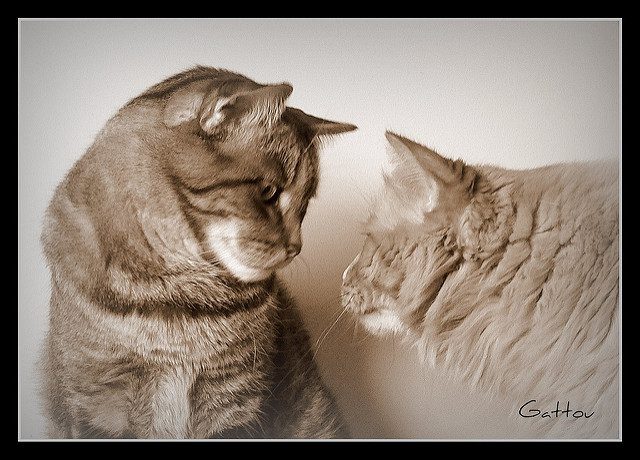 “There is more that unites us than divides us.” – Mauricio Macri
“There is more that unites us than divides us.” – Mauricio Macri
I’ve been fortunate to work with a lot of craft breweries during my fifteen years as CFO for a beer distributor. Most of those relationships have worked very well, but a few have not.
In the cases where the relationship worked well there was a healthy sense of mutual respect for the work and expertise each party brought to the table. There were also shared goals and a common understanding of expectations, roles, and responsibilities.
In the cases where the relationship did not work well, there was a disconnect between one or more key elements of a healthy relationship – a lack of trust, poor communication, or unrealistic expectations on one side or the other.
Below are my thoughts on the keys to successful Distributor-Craft Brewery relationships – what works, why it works, and how you can use this information to improve your own business relationships.
- Remember: We are more alike than we are unalike
- Mutual Respect and Understanding: Walk a mile in their moccasins
- Common goals – state your needs
- Everybody makes money – The Mike Repole Formula
- Communication – hard to get it right, but you gotta try
#1 We are more alike, than we are unalike
Distributors and craft breweries are partners. We are all playing the same game, and want the same outcome. We are all blessed to be able to work in the beer industry. We all have much more in common with each other than we have differences.
Sometimes it helps to step back, and get some perspective. This line from Maya Angelou’s poem seems particularly appropriate to the distributor-craft brewery relationship: “I note the obvious differences, between each sort and type, but we are more alike, my friends, than we are unalike.”
So remember this idea after your next difficult meeting with your partner – we are more alike than we are unalike. Maybe that big problem isn’t so big, maybe you can note the obvious differences, but still reach an agreement that works for both of you.
#2 Mutual Respect and Understanding
“Never criticize a man until you’ve walked a mile in his moccasins.” Native American Proverb
In our company we have multiple warehouses that are located many miles away from each other. Employees from one warehouse rarely see employees from another. Even though we are one company, the geographical separation causes a separation in identity – an “us vs. them” mentality.
Employees from one warehouse make assumptions about another: “they are out to get me” or “they don’t understand how hard my job is”. These misunderstandings fester and occasionally turn into full blown battles.
The root cause of these issues is a lack of understanding about the offending individual – what they actually do for work, and who they actually are as a person. The lack of understanding leads to a lack of respect, and erodes the relationship.
I’ve seen this same problem between distributors and craft breweries. We just don’t take the time to understand and respect the work that each of us does.
In our company, we found the most effective way to treat this situation was to get people together, in person, and get to know each other. Once they got to know each other they began to understand each other’s roles, responsibilities and challenges. Nine times out of ten, the employees worked out their differences and came away with an understanding and mutual respect for each other. Win.
Get to know your partner – distributor or craft brewer – understand who they are, and really learn what they do. Understanding will lead to respect and respect will lead to better relationships.
Here’s a great article you can check out if you want more on the benefits of building personal relationships with your business partners –
#3 Common goals – State your needs
When my wife and I were first married, we followed a simple rule called “state your needs”. In other words, if you wanted something (or didn’t want something), you needed to say it. Don’t remain silent, stew about it and become resentful because we couldn’t read each-others’ minds.
If something was important, we said it, out loud in plain English. This simple rule works well in a marriage, and I believe it is a key to successful business relationships.
As a distributor, what are your needs? As a craft brewery, what are your needs? Have you told each other, or are you silently resentful because the other side can’t read your mind?
Do it now. Make a list of what’s important, set a meeting with your partner, and state your needs.
#4 Everybody makes money
“Everyone knows that if you can keep on making money everyone’s happy.” -David Stern
Mike Repole was President of Glaceau Vitaminwater before they sold to Coke. One of the lessons I learned from him was that to be successful in the beverage business, everybody needed to be able to make money. In our case, ‘everybody’ meant the supplier, the distributor and the retailer. Everyone had a stake in the outcome and an incentive to promote and grow the brands.
This is a simple rule, but easy to overlook. We are all in business and need to remain open for business. Making money allows us to do so. A key to successful distributor-craft brewery relationships is to set up the system so that everyone makes money. This ensures everyone has a stake in the success of building brands – craft breweries, distributors and retailers.
#5 Communication
“Communication is everyone’s panacea to everything.” –Tom Peters
Tom Peters’ quote is cynical, but instructive. Open and honest communication is so important in any relationship, but it’s so hard to get it right. We have to work at it, and not just throw the words ‘we need better communication’ around as a band aid to fix every problem.
Distributors and craft breweries have different perspectives on how we see the world. We have may have different agendas. These differences shape what we hear. These differences lead to communication breakdowns, misunderstandings, and erosion of relationships.
The foundation of good communication starts with trust, and using simple, straight-forward language. In other words, no BS. Transparency in what we say, and what we do, is critical.
I read an article recently in Forbes that provided some good advice on this topic. Perhaps you will find something useful here as well to help improve your distributor-craft brewery relationship.
Despite our differences, distributors and craft breweries have at least one thing in common: the love of beer. We are in business, so we need to make money. We are human beings, so we have emotions and opinions that need to be understood. And at the end of it all, don’t forget: we are more alike than we are unalike.
Now, let’s get out there and sell some beer.
Want to hear from other industry experts? Click below to check out their thoughts on Keys to Successful Craft Brewery-Distributor Relationships.

